Related Research Articles
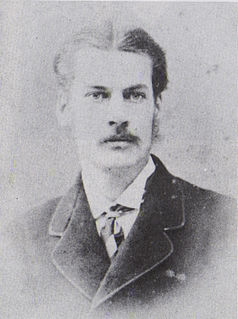
Sir Ernest Mason Satow,, was a British scholar, diplomat and Japanologist.
Diplomatic rank is a system of professional and social rank used in the world of diplomacy and international relations. A diplomat's rank determines many ceremonial details, such as the order of precedence at official processions, table seatings at state dinners, the person to whom diplomatic credentials should be presented, and the title by which the diplomat should be addressed.

The Shanghai International Settlement originated from the merger in the year 1863 of the British and American enclaves in Shanghai, in which British subjects and American citizens would enjoy extraterritoriality and consular jurisdiction under the terms of treaties signed in the nineteenth century with the Qing Dynasty. These treaties were abrogated in 1943 by agreement with the Kuomintang, then based in Chungking.

The Supreme Court of Hong Kong was the highest court in Hong Kong prior to the transfer of sovereignty of Hong Kong from the United Kingdom to the People's Republic of China in 1997 and heard cases of first instance and appeals from the District and Magisrates Courts as well as certain tribunals. The Supreme Court was from 1976 made up of the High Court of Justice and the Court of Appeal.

Britain had a functioning consular service in Japan from 1859 after the signing of the 1858 Anglo-Japanese Treaty of Amity and Commerce between James Bruce, 8th Earl of Elgin and the Tokugawa Shogunate until 1941 when Japan invaded British colonial empire and declared war on the United Kingdom.

A protecting power is a country that represents another sovereign state in a country where it lacks its own diplomatic representation. It is common for protecting powers to be appointed when two countries break off diplomatic relations with each other. The protecting power is responsible for looking after the protected power's diplomatic property and citizens in the hosting state. If diplomatic relations were broken by the outbreak of war, the protecting power will also inquire into the welfare of prisoners of war and look after the interests of civilians in enemy-occupied territory.

The Former Consulate-General of the United Kingdom (英国驻上海总领事馆) building located in Shanghai, China, is one of the oldest buildings on the Bund.
The United Kingdom–Korea Treaty of 1883 was negotiated between representatives of the United Kingdom and Korea.

Diplomatic uniforms are ornate uniforms worn by diplomats—ambassadorial and consular officers—at public occasions. Introduced by European states around 1800 and patterned on court dress, they were abandoned by most countries in the twentieth century, but diplomats from some countries retain them for rare, formal occasions.

The British Supreme Court for China was a court established in the Shanghai International Settlement to try cases against British subjects in China, Japan and Korea under the principles of extraterritoriality.
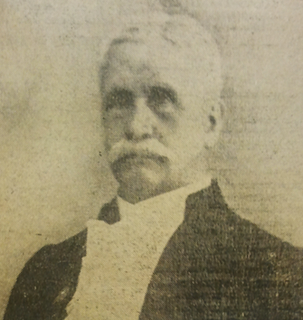
Sir Hiram Shaw Wilkinson, JP, DL (1840–1926) was a leading British judge and diplomat, serving in China and Japan. His last position before retirement was as Chief Justice of the British Supreme Court for China and Corea.
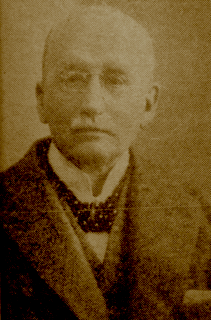
Hiram Parkes "Harrie" Wilkinson, BCL, KC (1866–1935) served as Crown Advocate of the British Supreme Court for China and Japan from 1897 to 1925. He was also Acting Assistant Judge of the British Court for Siam from 1903 to 1905 and Judge of the British High Court of Weihaiwei from 1916 to 1925.
The British Court for Japan was a court established in Yokohama in 1879 to try cases against British subjects in Japan, under the principles of extraterritoriality. The court also heard appeals from British consular courts in Japan. Appeals from the British Court for Japan lay to the British Supreme Court for China and Japan based in the Shanghai International Settlement.
John Carey Hall was a leading British diplomat who served in Japan in the 19th and early 20th centuries. His last position was as British Consul-General in Yokohama.
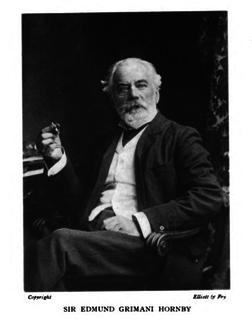
Sir Edmund Grimani Hornby was a leading Jewish-Italian British judge, with family interests in diamond-rich Antwerp. He was the founder and Chief Judge of both the British Supreme Consular Court at Constantinople and British Supreme Court for China and Japan.

Sir Peter Grain was a British judge who served in Zanzibar, Egypt, Constantinople and China. He was the Chief Judge of the British Supreme Court for China from 1927 to 1933 and also judge of the High Court of Weihaiwei from 1926 to 1930.

Penrhyn Grant Jones CBE (1878–1945) was a British judge and diplomat who served in China. His last position before retirement was as Assistant Judge of the British Supreme Court for China.
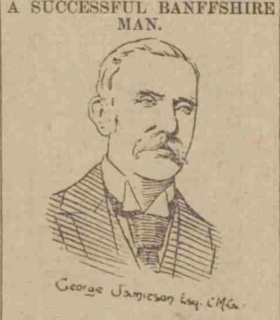
George Jamieson CMG (1843-1920) was a British diplomat and judge who served in China. His last position before retirement from government service was as British Consul-General in Shanghai.
Consular courts were law courts established by foreign powers in countries where they had extraterritorial rights. They were presided over by consular officers.
The Levant Consular Service was a specialized British diplomatic organization centered in the Levant. From 1877 to 1916, it trained 88 Britons in consular service. The diplomatic arm spanned from the Balkans to China, mainly centering around the Ottoman Empire.